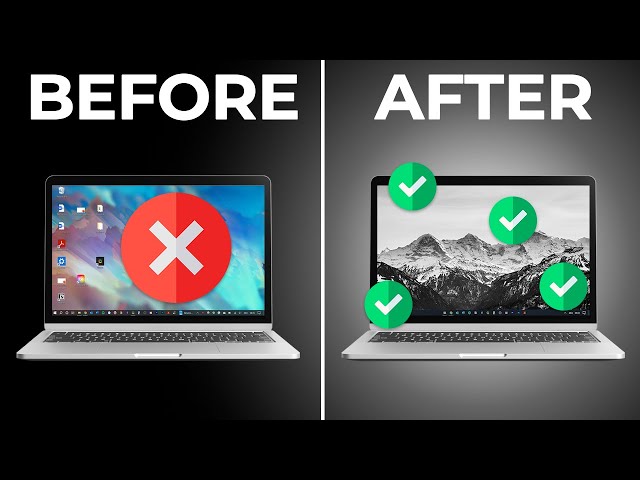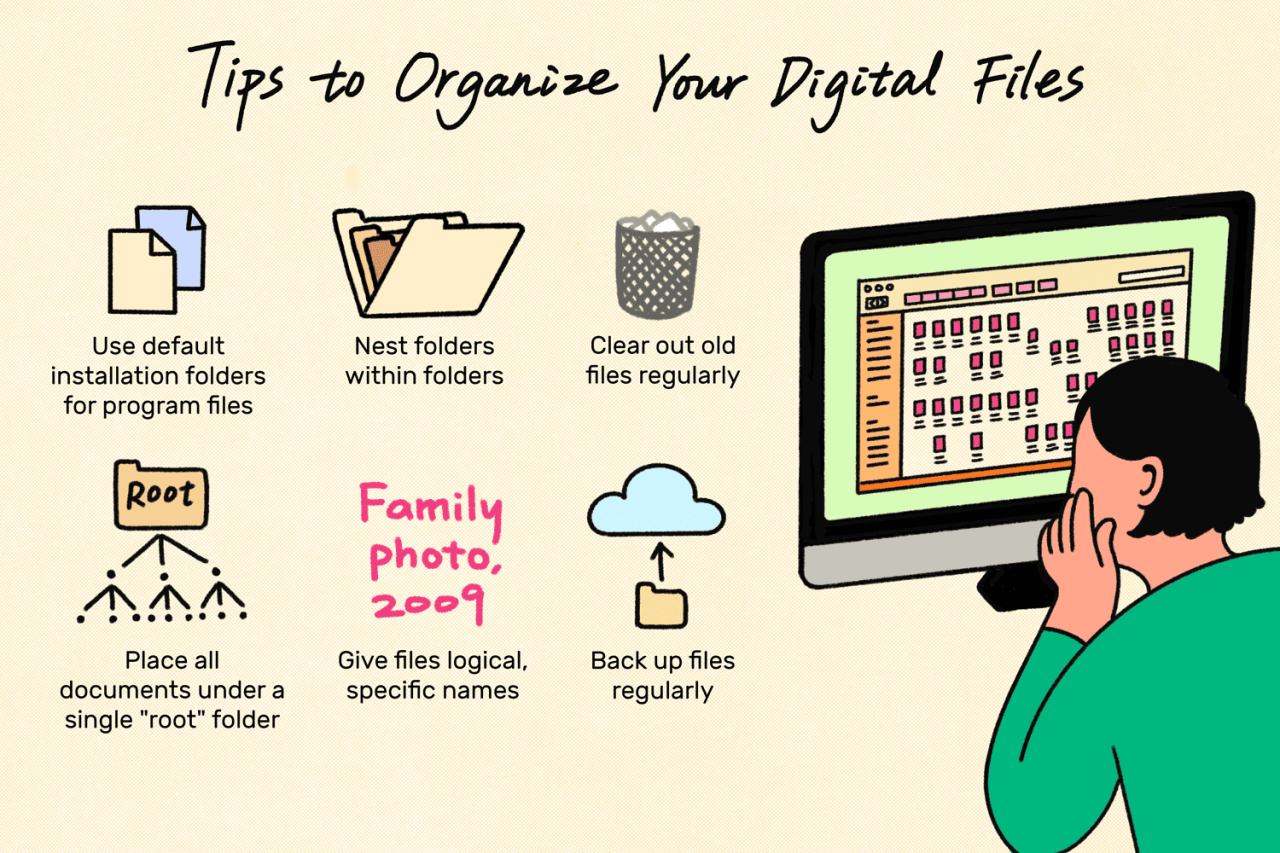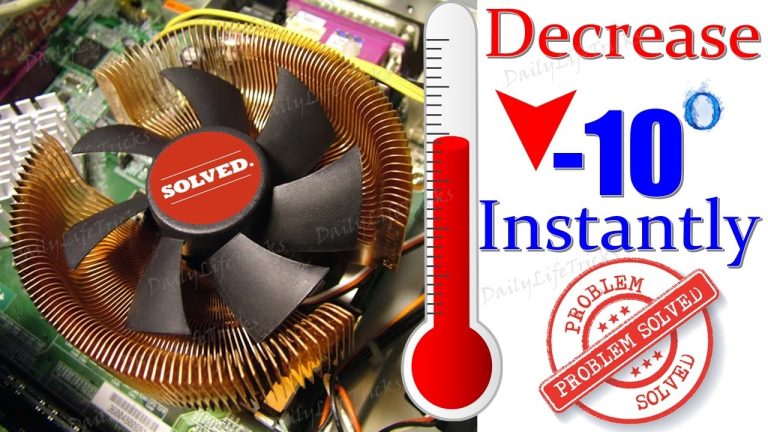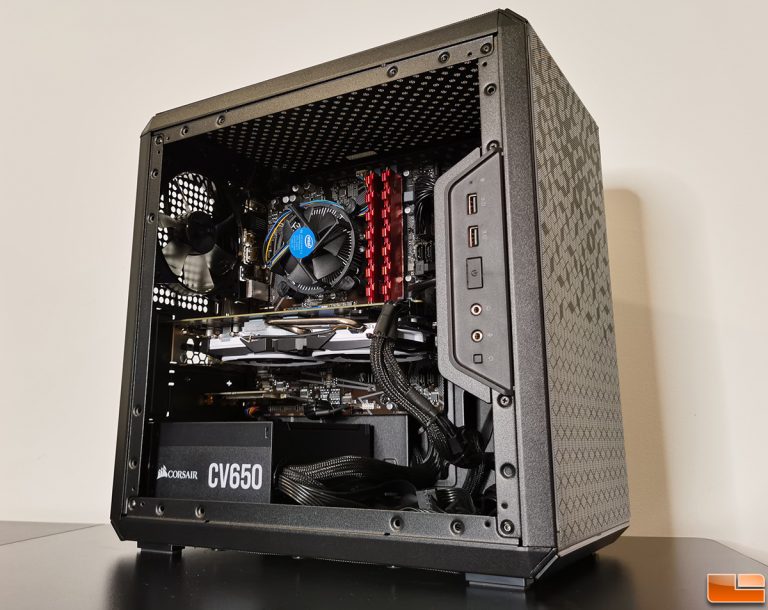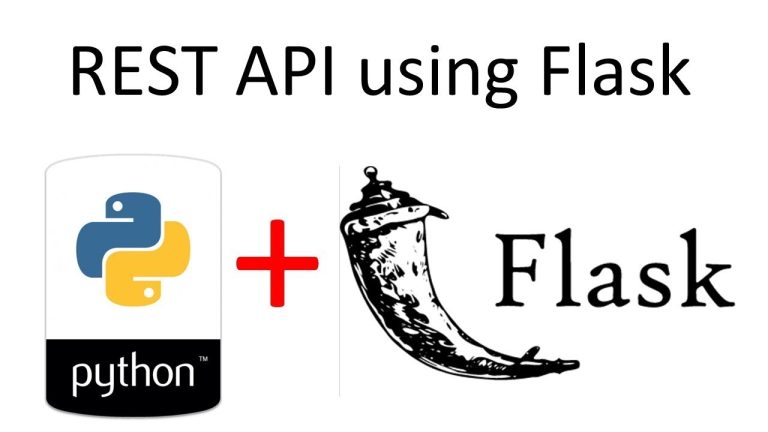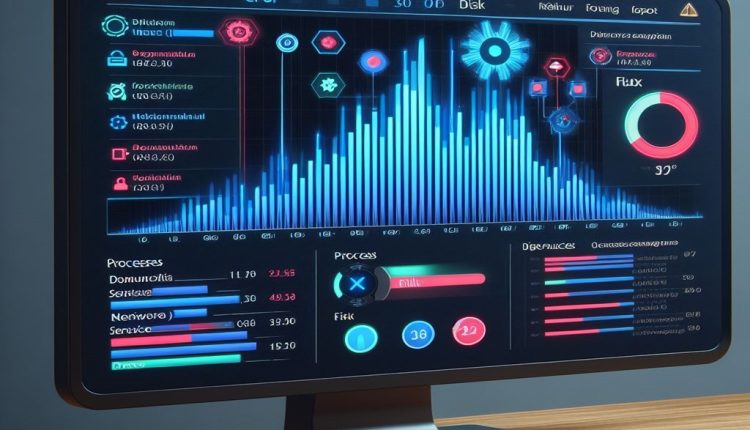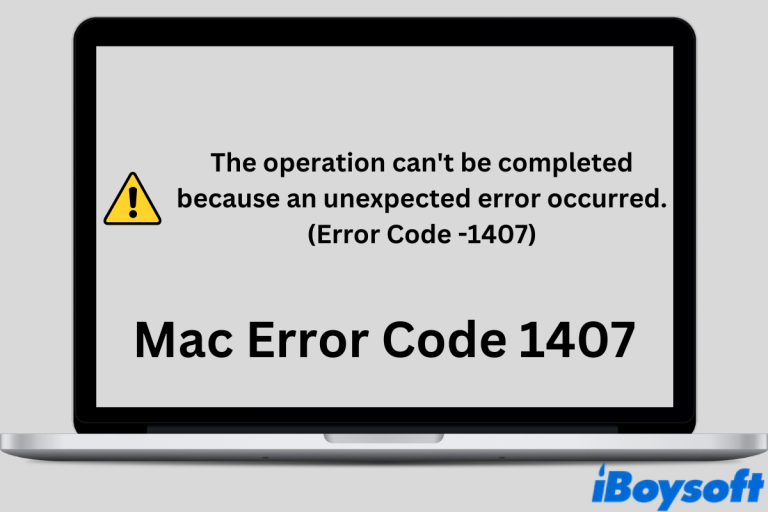Tips For Maintaining A Clean And Organized Pc

Maintaining a clean and organized PC can significantly enhance productivity, ensuring a smooth and efficient computing experience. In this article, we delve into practical tips for achieving a clutter-free and well-maintained PC.
Regular cleaning and organization not only optimize performance but also prevent hardware damage. A historical development worth noting is the introduction of “Disk Cleanup” in Windows 98, which simplified the process of removing temporary files and other unnecessary data.
To guide you through the journey of PC optimization, we present expert advice on organizing files and programs, automating tasks, and protecting your PC from potential threats.
Tips for Maintaining a Clean and Organized PC
Maintaining a clean and organized PC is crucial for optimal performance and longevity. Here are 9 essential aspects to consider:
- File Management
- Program Organization
- Disk Cleanup
- Malware Protection
- Registry Cleaning
- Driver Updates
- Hardware Maintenance
- Regular Backups
- System Optimization
Proper file management involves organizing files into folders and subfolders, while effective program organization ensures that programs are installed and updated efficiently. Disk cleanup removes unnecessary files, malware protection safeguards against malicious software, and registry cleaning optimizes the Windows registry. Regular driver updates enhance hardware compatibility, while hardware maintenance extends the lifespan of PC components. Creating regular backups protects valuable data, and system optimization tweaks enhance overall PC performance.
File Management
Effective file management is a cornerstone of maintaining a clean and organized PC. When files are properly organized, it becomes easier to locate and retrieve them, reducing time wasted searching through cluttered folders.
A well-structured file system involves creating folders and subfolders to categorize different types of files. For example, you can create folders for documents, images, videos, music, and downloads. This organization not only keeps your files tidy but also makes it easier to perform tasks such as file backups and data recovery.
Moreover, proper file management helps prevent data loss. When files are scattered across multiple locations or stored in disorganized folders, the risk of accidentally deleting or overwriting them increases. By maintaining a structured file system, you can minimize the likelihood of data loss and protect your valuable information.
Program Organization
Program organization is a critical aspect of maintaining a clean and organized PC, contributing directly to its overall efficiency and functionality. When programs are properly organized, it becomes easier to locate and launch them, reducing wasted time searching through cluttered lists or menus.
Effective program organization involves installing programs in a logical manner, grouping similar programs together, and creating shortcuts for frequently used programs. This structure allows you to quickly access the programs you need, without having to navigate through multiple folders or search through a long list of installed programs.
Moreover, proper program organization can help prevent software conflicts and system instability. When programs are installed randomly or in incompatible locations, they may interfere with each other’s operation, leading to crashes or errors. By organizing programs in a structured manner, you can minimize the risk of these conflicts and ensure that your PC runs smoothly.
Disk Cleanup
Disk Cleanup is an essential component within the broader concept of maintaining a clean and organized PC. Its primary function is to remove unnecessary files and temporary data that accumulate over time, contributing to a cluttered and sluggish system.
Using Disk Cleanup is a crucial step in PC maintenance for several reasons. Firstly, it helps free up disk space, allowing for more efficient storage and operation of programs and files. Secondly, removing temporary files and clutter can improve system performance by reducing the time it takes for the PC to search through unnecessary data to locate the information it needs.
In real-life applications, Disk Cleanup can be utilized to address various issues related to PC organization and performance. For instance, it can be used to remove temporary internet files that accumulate when browsing the web or to delete old system files that are no longer required. Additionally, Disk Cleanup can be scheduled to run automatically at regular intervals, ensuring that the PC remains clean and organized without manual intervention.
Malware Protection
Malware Protection plays a crucial role in maintaining a clean and organized PC. It encompasses various measures and techniques designed to safeguard your computer from malicious software and online threats.
-
Antivirus Software
Antivirus software acts as a shield against viruses, worms, and other malicious programs. It scans files and programs before they are opened or downloaded, detecting and removing any threats.
-
Firewall
A firewall acts as a barrier between your PC and the internet, monitoring incoming and outgoing network traffic. It blocks unauthorized access attempts and prevents malicious software from entering your system.
-
Anti-Spyware
Anti-spyware software detects and removes spyware, a type of malware that collects sensitive information without your knowledge or consent. It can prevent identity theft and protect your privacy.
-
Regular Updates
Regularly updating your operating system and software patches is crucial. These updates often include security enhancements that protect your PC from newly discovered vulnerabilities.
By implementing these malware protection measures, you can significantly reduce the risk of malware infections, ensuring a clean and organized PC. Malware can not only disrupt your computer’s performance but also compromise your personal data and financial information. Therefore, prioritizing malware protection is essential for maintaining a secure and efficient computing environment.
Registry Cleaning
Registry cleaning is a crucial component of maintaining a clean and organized PC. The Windows registry is a central database that stores settings and configurations for the operating system, programs, and hardware devices. Over time, the registry can become cluttered with obsolete or invalid entries, which can lead to performance issues, system instability, and even crashes.
Regular registry cleaning can help improve system performance and stability by removing these unnecessary entries. It can also help prevent errors and crashes caused by corrupted or outdated registry keys. Additionally, registry cleaning can free up disk space and improve the overall responsiveness of your PC.
There are several ways to clean the registry, including using a dedicated registry cleaner tool or manually editing the registry yourself. However, it is important to note that registry cleaning should be done with caution, as making mistakes can lead to serious problems with your PC. If you are not comfortable editing the registry yourself, it is best to use a reputable registry cleaner tool.
Driver Updates
Driver updates are an essential component of maintaining a clean and organized PC. Drivers are software programs that allow your computer to communicate with hardware devices, such as your graphics card, sound card, and printer. Outdated or corrupt drivers can cause a variety of problems, including system crashes, blue screens, and performance issues.
Regularly updating your drivers is therefore crucial for keeping your PC running smoothly and efficiently. Driver updates often include bug fixes, security patches, and performance enhancements. By installing the latest drivers, you can help prevent problems and improve the overall performance of your PC.
There are several ways to update your drivers. You can manually download and install drivers from the manufacturer’s website, or you can use a driver update tool to automatically scan your PC for outdated drivers and install the latest versions. If you are not comfortable updating your drivers manually, it is recommended to use a driver update tool.
Hardware Maintenance
Hardware maintenance plays a vital role in maintaining a clean and organized PC. It involves taking steps to ensure that the physical components of your computer are functioning properly and are free from dust, debris, and other potential hazards.
-
Cleaning and Dust Removal
Regularly cleaning your computer’s hardware components, such as the fans, heatsink, and power supply, helps prevent overheating and ensures optimal performance. Dust accumulation can impede airflow and cause components to run hotter, leading to reduced lifespan and potential damage.
-
Hard Drive Health Monitoring
Monitoring the health of your hard drive is crucial for preventing data loss and ensuring the smooth operation of your PC. Using built-in tools or third-party software, you can check for potential issues such as bad sectors, fragmentation, and impending drive failure.
-
Thermal Paste Replacement
Thermal paste is a critical component in ensuring proper heat transfer between the CPU and heatsink. Over time, thermal paste can degrade, reducing its effectiveness and leading to overheating. Regularly replacing thermal paste helps maintain optimal cooling and prevents potential damage to your CPU.
-
Cable Management
Proper cable management not only improves the aesthetics of your PC but also promotes airflow and prevents dust accumulation. Neatly organizing and securing cables reduces clutter, improves airflow, and facilitates future maintenance or upgrades.
By adhering to these hardware maintenance practices, you can significantly enhance the longevity, stability, and performance of your PC. Regular cleaning, monitoring, and maintenance can prevent costly repairs, data loss, and premature hardware failure, ensuring a clean and organized PC that serves you well for years to come.
Regular Backups
Regular backups are an essential component of maintaining a clean and organized PC. They provide a safety net against data loss due to hardware failure, software corruption, or accidental deletion.
-
Backup Types
There are various types of backups, including full backups, incremental backups, and differential backups. Each type serves a specific purpose and frequency, ensuring comprehensive data protection.
-
Backup Destinations
Backups can be stored on local hard drives, external hard drives, network-attached storage (NAS) devices, or cloud storage services. Choosing the right destination depends on factors such as storage capacity, accessibility, and security.
-
Backup Scheduling
Regular backups should be scheduled to run automatically at predefined intervals. This ensures that data is backed up consistently, protecting against potential data loss due to unforeseen circumstances.
-
Backup Verification
It is crucial to verify the integrity of backups regularly to ensure that data can be restored successfully. This involves checking the backup files for corruption or errors.
Regular backups play a vital role in maintaining a clean and organized PC by providing peace of mind and ensuring data recovery in the event of data loss. By implementing a robust backup strategy, you can safeguard your valuable data and maintain a well-organized and protected PC.
System Optimization
System Optimization is a critical component of maintaining a clean and organized PC, contributing significantly to its overall performance and efficiency. It involves implementing various techniques and strategies to enhance system stability, speed, and responsiveness.
One of the key aspects of System Optimization is optimizing startup items. By reducing the number of programs and services that launch automatically when you start your PC, you can significantly improve boot time and overall system performance. Additionally, regularly cleaning temporary files, cache, and unnecessary programs helps free up valuable disk space and reduce clutter, leading to a cleaner and more organized PC.
Furthermore, System Optimization involves optimizing hardware performance. This includes ensuring that your PC has adequate RAM and storage space, as well as keeping your hardware components clean and well-maintained. Regular updates to your operating system and drivers are also crucial for maintaining optimal system performance and security.
Overall, System Optimization plays a vital role in maintaining a clean and organized PC. By implementing these techniques, you can enhance system stability, speed, and responsiveness, resulting in a more efficient and enjoyable computing experience.
Frequently Asked Questions on Maintaining a Clean and Organized PC
This section addresses common questions and concerns regarding the maintenance of a clean and organized PC, providing clear and concise answers to guide users in optimizing their computing experience.
Question 1: How often should I clean my PC?
The frequency of PC cleaning depends on usage patterns and the environment. Regular cleaning every 3-6 months is recommended to prevent dust accumulation and ensure optimal performance.
Question 2: What are the benefits of a clean and organized PC?
A clean and organized PC offers numerous benefits, including improved performance, reduced risk of hardware failure, faster boot times, enhanced security, and a more enjoyable user experience.
Question 3: What are some common mistakes to avoid when cleaning my PC?
Common mistakes include using harsh chemicals or excessive moisture, neglecting to clean internal components, and skipping regular maintenance. Proper cleaning involves using appropriate tools and techniques.
Question 4: How can I optimize my PC’s performance through software maintenance?
Software maintenance involves removing unnecessary programs, cleaning the registry, updating drivers, and optimizing startup items. These measures help free up resources, reduce clutter, and improve overall system speed.
Question 5: What is the importance of data backup in PC maintenance?
Data backup is crucial for safeguarding valuable files from accidental deletion or hardware failure. Regular backups to external hard drives or cloud storage ensure data recovery in case of emergencies.
Question 6: How can I prevent malware infections and protect my PC’s security?
Malware protection involves installing and updating antivirus software, using a firewall, practicing safe browsing habits, and being cautious of suspicious emails or attachments.
These FAQs provide essential guidance on maintaining a clean and organized PC, highlighting the importance of regular maintenance, software optimization, data backup, and security measures. By adhering to these practices, users can ensure optimal PC performance, minimize potential issues, and enhance their overall computing experience.
Moving forward, we will delve deeper into the topic of PC maintenance, exploring advanced techniques and troubleshooting tips to help you maintain a pristine and efficient computing environment.
Tips for Maintaining a Clean and Organized PC
Maintaining a clean and organized PC is crucial for optimal performance and longevity. Here are six essential tips to help you achieve a clutter-free and efficient computing experience:
Tip 1: Declutter Your Desktop
Remove unnecessary icons, shortcuts, and files from your desktop. A cluttered desktop can slow down your PC and make it difficult to find what you need.
Tip 2: Organize Your Files and Folders
Create a structured system for organizing your files and folders. Use descriptive names and keep related files together. This will save you time searching for files and reduce frustration.
Tip 3: Clean Up Your Downloads Folder
The Downloads folder often becomes a dumping ground for files. Regularly review and delete any unnecessary or outdated files to free up space and improve performance.
Tip 4: Uninstall Unused Programs
Over time, you may accumulate programs that you no longer use. Uninstall these programs to free up disk space, reduce clutter, and improve system performance.
Tip 5: Run Disk Cleanup Regularly
Disk Cleanup is a built-in Windows utility that removes temporary files, cache, and other unnecessary data. Running Disk Cleanup can free up significant amounts of space and improve system performance.
Tip 6: Keep Your Software Up to Date
Software updates often include security patches and bug fixes. Regularly updating your operating system and software applications can help protect your PC from malware and improve its overall stability.
By following these tips, you can keep your PC clean, organized, and running at its best. A well-maintained PC will not only improve your productivity but also extend its lifespan and reduce the risk of data loss.
Moving forward, we will explore advanced techniques for optimizing your PC’s performance and security, ensuring a seamless and efficient computing experience.
Conclusion
Maintaining a clean and organized PC is essential for optimizing performance, enhancing security, and ensuring a seamless computing experience. This article has explored various tips and techniques for achieving a clutter-free and efficient PC.
Key takeaways include the importance of decluttering desktops, organizing files and folders, and regularly cleaning up downloads and unused programs. Additionally, running Disk Cleanup and keeping software up to date are crucial for maintaining optimal performance and security.
Remember, a well-maintained PC not only improves productivity but also extends its lifespan and reduces the risk of data loss. By implementing the tips outlined in this article, you can ensure a clean, organized, and efficient computing environment that meets your needs and supports your digital endeavors.
